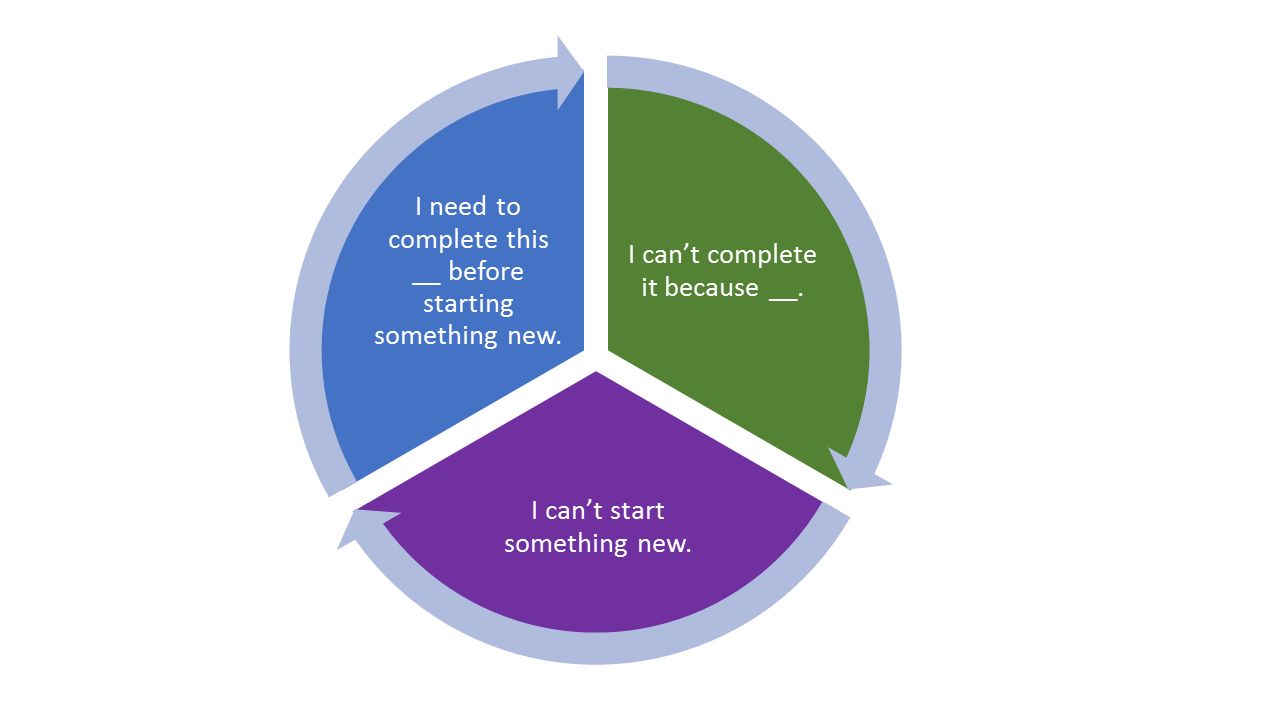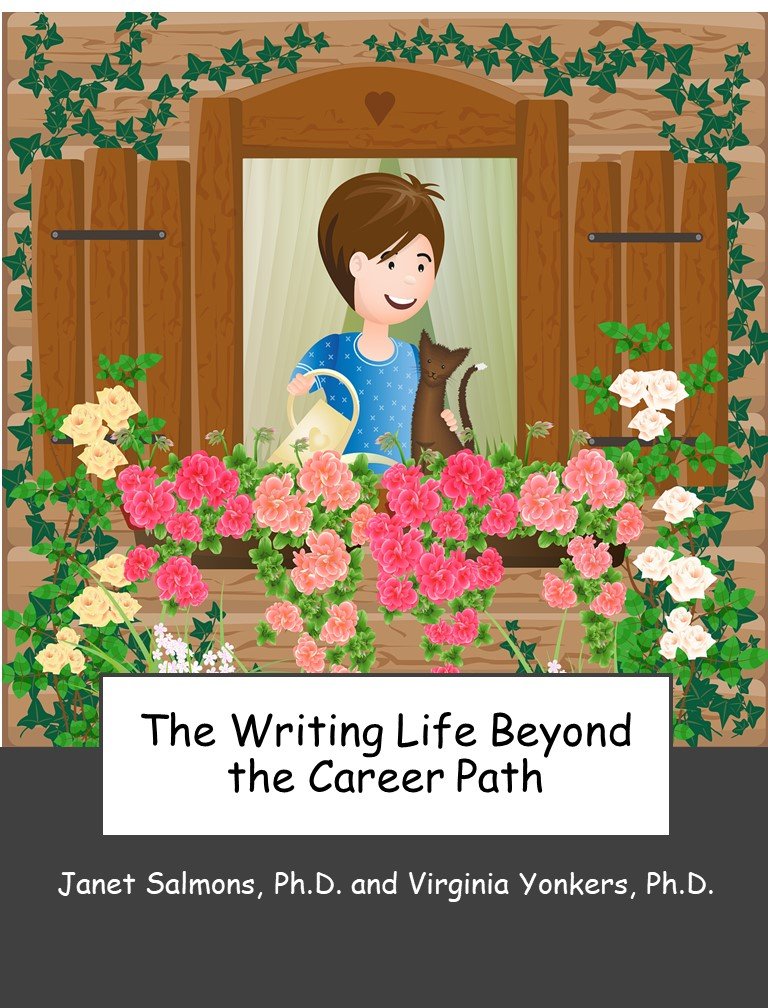Revive an Old Writing Project, or Let It Die?
by Janet Salmons, Research Community Manager for SAGE Methodspace
Dr. Salmons is the author of Doing Qualitative Research Online, which focuses on ethical research and writing, What Kind of Researcher Are You? which focuses on researcher integrity, and Publishing from your Doctoral Research, with Dr. Helen Kara.

No matter how organized or productive we are, sometimes we run out of ideas, enthusiasm, time, or all of the above. The piece of writing we thought would change the world is now gathering dust. Options include dusting off the unfinished article, book or chapter and refreshing it with updated literature and/or data. We might pull back from the scholarly content (especially if it is dated) and create some practical how-to resources. We could re-purpose it, using the half-done piece as the basis for a more informal item for our professional society's blog or newsletter. We could ask for help, perhaps by joining a supportive writing group, requesting feedback from trusted colleagues, or by looking for co-authors who could bring new insights to the project. Or we can declare it dead, and start fresh with a new direction for our writing. How do we decide which is the best path forward?
Escape the self-defeating cycle.
Have you been trapped in this loop? You want to move forward, but you feel that you must first complete what you started.
Re-visit the obstacles.
Are the "I can't finish it because..." obstacles ones you can realistically surmount? If so, make a plan, set up systems of accountability that will work for you, and re-commit to the project. Are your obstacles related to time, focus, content, or tools? By identifying the issues, can you find ways to address them?

If obstacles include deficiencies in skills or abilities necessary to writing success, take a candid look at feedback you have received, and identify what you need to learn. If these issues will cause obstacles to completion of future projects, think about ways to mitigate them. Look for tutorials or classes that can help you address the gaps. In the process, you might find encouragement and camaraderie with other aspiring writers. When you realize that the obstacles to completion of this project are simply too great, let it go.
Avoid sacrificing the future to the past.
It was a great concept... was being the operative term. If obstacles to completion are too great, and the old project is keeping you from moving forward, it is counter-productive to persist. Let it go. If you made commitments, or have agreements, take the steps needed to withdraw. Come to terms with this ending, and use it as a springboard for a new beginning. It is always hard to give up and say goodbye. Create a positive impetus by using this farewell as a teachable moment. Reflect on lessons learned. What will you do differently with the new project? How will you avoid falling back into the self-defeating cycle?
More Methodspace posts about academic writing
Don’t get caught by predatory publishers!
Sometimes taking a break from the keyboard to write by hand unleashes creativity.
Maria Lahman offers tips to help you hone your academic writing
Find tips that will help you hone your writing.
Get ready for #AcWriMo! Find a checklist that will help you overcome obstacles that keep you from making progress with academic writing.
This must-read article in The Scholarly Kitchen caught my attention: “Who Is Going to Make Money from Artificial Intelligence in Scholarly Communications?” See this thought-provoking interview with the author, Joseph Esposito.
Learning while doing: collaborating on a book about collaboration.
Ethical decisions are present throughout the process of academic writing and publishing. This collection of open-access articles offers insights about some of the issues writers face.
In this podcast panelist Leslie Wang discusses “All About Writing Groups” and offers practical tips for organizing your own.
What do academics write when they are free from institutional constraints about what they can publish? See this post and conversation with Janet Salmons and Virginia Yonkers.
Dr. Boyd was a panelist for the webinar, How Academic Writing Coaches Get Unstuck. In this post she responds to questions posed by attendees: “How do you get unstuck in writing when someone's negative, hypercritical, or just mean feedback has gotten you stuck?” and “How do you balance or sustain your writing with all the imposter syndrome thoughts coming at you?
Dr. Boyd was a panelist for the webinar, How Academic Writing Coaches Get Unstuck. In this post she responds to questions posed by attendees: “How do you get unstuck in writing when someone's negative, hypercritical, or just mean feedback has gotten you stuck?” and “How do you balance or sustain your writing with all the imposter syndrome thoughts coming at you?
Since I am advocating for ways to stay engaged with writing, drifting may seem a strange interlude. Yet, I find drifting to be a vital companion state to writing. For me, usually drifting occurs when I have set aside all devices and am absorbed in some wholly different task, such as gardening, chauffeuring or waiting for children, or simply watching birds congregate at the feeder.
Where do you start when the blank page is staring at you? Answer these key questions to get started!
Find food for thought and strategies for action this AcWriMo on SAGE Methodspace.
We are all busy. How can we find time to write? Maria Lahman, author of Writing and Representing Qualitative Research offers some suggestions.
AcWriMo is coming soon! Plan ahead by registering for a free webinar, How Academic Writing Coaches Get Unstuck.
What is a “scholarly voice” and how do I develop it?
Organize your writing so reviewers understand what you are saying.
Want to make an impact? Learn about the H Factor!
How can you communicate research findings visually?






















This post includes tips about writing qualitative proposals excerpted from Research Design by Creswell and Creswell.